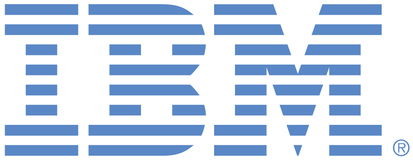
This is an IBM Automation portal for Integration products. To view all of your ideas submitted to IBM, create and manage groups of Ideas, or create an idea explicitly set to be either visible by all (public) or visible only to you and IBM (private), use the IBM Unified Ideas Portal (https://ideas.ibm.com).
Shape the future of IBM!
We invite you to shape the future of IBM, including product roadmaps, by submitting ideas that matter to you the most. Here's how it works:
Search existing ideas
Start by searching and reviewing ideas and requests to enhance a product or service. Take a look at ideas others have posted, and add a comment, vote, or subscribe to updates on them if they matter to you. If you can't find what you are looking for,
Post your ideas
Post an idea.
Get feedback from the IBM team and other customers to refine your idea.
Follow the idea through the IBM Ideas process.
Specific links you will want to bookmark for future use
Welcome to the IBM Ideas Portal (https://www.ibm.com/ideas) - Use this site to find out additional information and details about the IBM Ideas process and statuses.
IBM Unified Ideas Portal (https://ideas.ibm.com) - Use this site to view all of your ideas, create new ideas for any IBM product, or search for ideas across all of IBM.
ideasibm@us.ibm.com - Use this email to suggest enhancements to the Ideas process or request help from IBM for submitting your Ideas.

I have stumbled across a similar thing. The GSKit package of the MQ client will automatically install the 32-bit and the 64-bit version of the binaries. It would be nice to have two RPMs (one for each bitism). That way I can only install the 64-bit package if that's what I need.
The notion of the OP is similar - I would like to install 64-bit only installations. I keep seeing users accidentally work with the 32-bit versions and then running into issues.
Is this worth its own idea?
Thank you for your suggestion.
IBM MQ already supports creating a 64-bit redistributable client for Linux using the genmqpkg tool. This tool allows you to build smaller, self-consistent client packages that exclude 32-bit executables and libraries.
The notice in the documentation refers specifically to users who manually extract a subset of client libraries, rather than those using genmqpkg. We’ll update the documentation to clarify this distinction.
We also recommend including the ras component when creating a smaller client package with genmqpkg, as this ensures that the relevant diagnostic tools are available to assist IBM Support in troubleshooting.